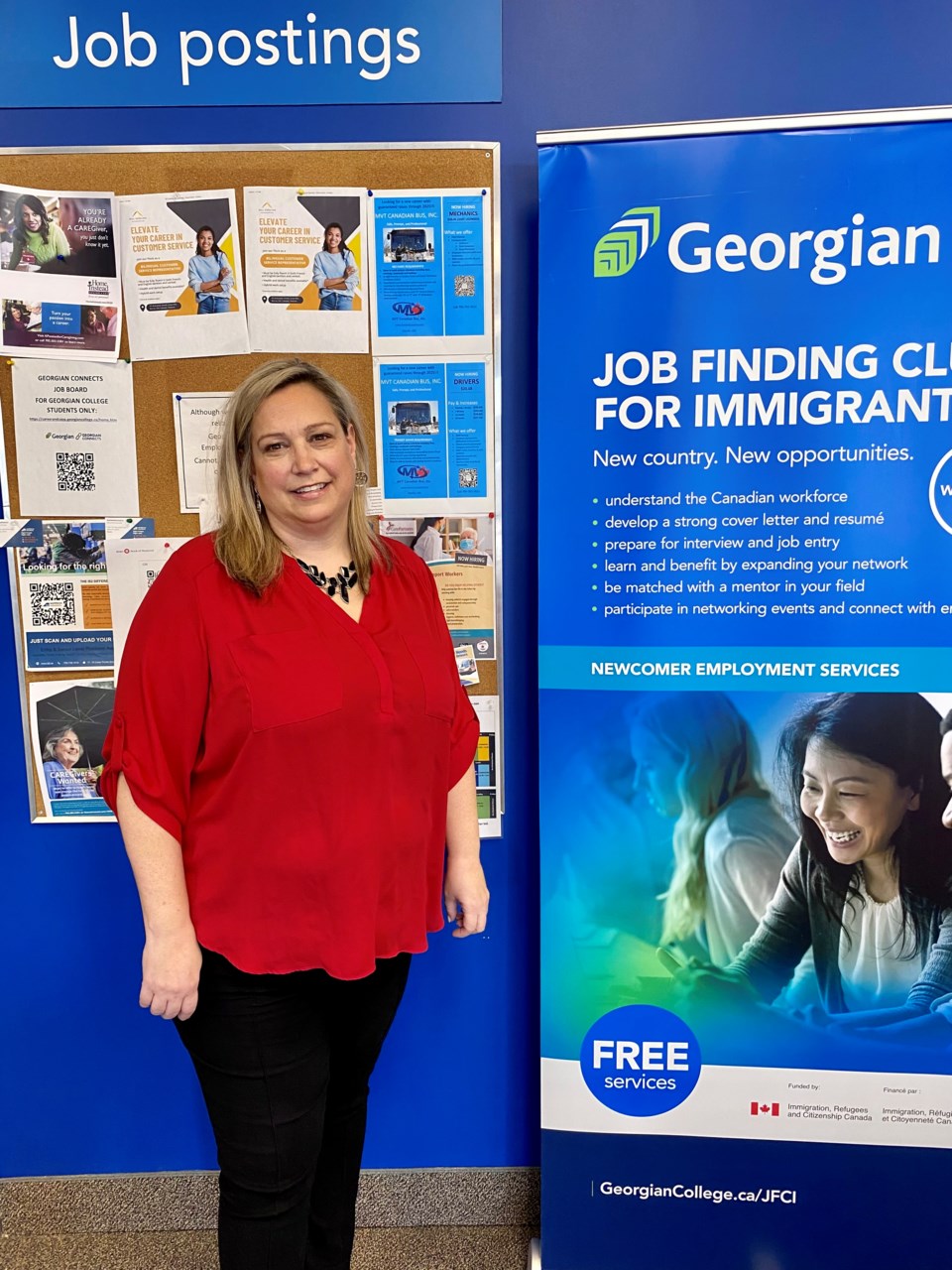Holly Hie has seen transformative changes in the workplace in recent years. Technology and automation are continually introducing new approaches, which require ever-evolving skill sets, while the COVID pandemic ushered in new attitudes and ideas.
“One of the questions that we ask now is this hybrid or is this in-person,” says Hie, manager of employment services at Georgian College’s Career and Employment Community Services. “There are a lot more factors now post-pandemic that we get to consider as a job seeker.”
The pandemic’s stay-at-home measures introduced widespread work-from-home scenarios, which many companies have introduced permanently, at least in part through a mix of home and in-office hours.
A wave of retirements during the pandemic also resulted in a country-wide labour shortage, meaning there is more room for negotiation on where, when and how the work is done.
More jobs, however, doesn’t necessarily translate into desirable jobs, given the need for wages to reflect the cost of living, which Hie points out isn’t the same for everyone.
Technology, meanwhile, continues to evolve, requiring workers to be on top of their game through lifelong learning and adapting to the changes.
The takeaway, Hie suggests, is that workers need to adopt more of an entrepreneurial approach, watching for where the opportunities lie and preparing for them to remain competitive.
“Everyone should approach their career progression with an entrepreneurial spirit, no matter what the position or industry," Hie says. "Job seekers should always be on the lookout for ways to improve their skill set and take advantage of learning a new skill or gain additional knowledge to ensure retention and increase their marketability."
She suggests individuals need to forge their own path forward. That could include finding job-shadowing opportunities, going to conferences, formal education and training and certificate programs, with or without the support of the employer.
Knowing what jobs are currently available and what kind of jobs are expected to be in demand in the future can help keep individuals employed.
The Ontario labour market for central Ontario, which includes Barrie, lists accounting technicians/bookkeepers, bus drivers, religious leaders, doctors, insurance, real estate and financial brokerage managers among the jobs forecasted to remain in demand for the next five years.
Immigration-oriented resource website CanadaWiz.ca reports an increase in demand for most roles this year including skilled labour, such as general labourers, truck drivers and welders as well as administrative and professional roles — human resource manager, project manager, account manager, administrative assistant, and receptionist.
Employment counsellors keep an eye on those trends as they help job seekers make effective career decisions, but they also act as coaches in today’s more involved employment market, Hie explains.
When they help someone get a job or return to school, the future of the position is an underlying consideration.
Together, they look at the future of that job and what is required. That could involve upgrading skills and ongoing education.
“We’re looking at not only moving someone into employment, but we’re also trying to say: ‘What skills are you also going to need in three, five, 10 years from now to keep you current and to keep you moving ahead,” she says.
“In our current role, what we do is when someone finds employment, we continue to follow them for at the minimum of 12 months” to support the individual in their new job and examine the future of that role and what will be required, Hie adds.
“It’s not always just sitting with the employer itself — individuals have to be aware of the industry, they have to be aware of so many factors: the industry, the environment, the provincial, federal, local effects that that work has.”
It's all part of that self-marketing approach that Hie calls "Me Incorporated." That means understanding the impacts of new approaches that will help individuals prepare and be part of the solution.
A key approach at the local centre is keeping people employed longer and that could be through skills training, automation and learning how artificial intelligence is being incorporated into the work. But the bottom line is ensuring the individual remains indispensable to the employer, Hie says.



